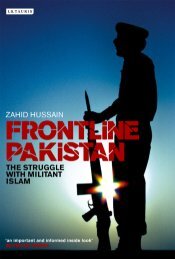Who Owns Pakistan - Yimg
Who Owns Pakistan - Yimg
Who Owns Pakistan - Yimg
You also want an ePaper? Increase the reach of your titles
YUMPU automatically turns print PDFs into web optimized ePapers that Google loves.
10, 1997, the Supreme Court observed that " there appears to be no statutory<br />
rules or regulations or any expressed policy guideline issued by the State Bank<br />
of <strong>Pakistan</strong>, regulating or controlling the powers of banks to write-off, reschedule<br />
loans and interest which is being exercised by these banks, arbitrarily, without<br />
keeping in view the commercial considerations".<br />
The revival of sick industrial units is an important priority for Nawaz Sharif govt<br />
and the reason for this priority is not difficult to understand if one goes through<br />
the list of biggest defaulters in the country. How the concept of reviving sick<br />
industries has evolved is itself a meaningful comment on how the system works<br />
and how corruption breeds corruption?<br />
The H U Beg committee granted relief to hundards of sick industrial units and<br />
fathered the idea of another committee by recommending that relief be provided<br />
by reducing or rescheduling the loans of hundards of sick industrial units, " on<br />
case by case basis". This led to the creation of another committee by <strong>Pakistan</strong><br />
Banking Council, in 1987 to provide relief to sick units, on permanent basis.<br />
In 1988, <strong>Pakistan</strong> Banking Council empowered the board of nationalized<br />
commercial banks to write-off restructure loans up to Rs 1.00 million but loans<br />
above 1 million were to be referred to PBC Committee. In 1991, during Nawaz<br />
Sharif premiership, board of directors of all the financial institutions were<br />
empowered to write-off any loan.<br />
The meetings of Federation of <strong>Pakistan</strong> Chamber of Commerce and Industry<br />
Committee (FPCCI) for revival of sick industries during second Benazir govt were<br />
chaired by Asif Zardari and it was during this period that FPCCI proclaimed<br />
proudly that it had managed the restructuring and rescheduling of 400 cases or<br />
Rs 24 billion and advised sponsors of sick/closed units, " in their own interest" to<br />
contact the federation and avail the opportunity of settling their cases with banks<br />
to make their units operational". We have already seen pervious pages that<br />
second Benazir govt scandalously wrote-off loans worth Rs 3,550 millions<br />
including all the loans of Farooq A Sheikh, Chairman FPCCI committee for<br />
revival of sick industrial units.<br />
The practice of writing off/ rescheduling loans has become a big business. In fact<br />
it is such a powerful and lucrative business that honest and professional bankers<br />
were reluctant to talk against this evil. A senior banker from National<br />
Development Finance Corporation (NDFC) who had done a comprehensive<br />
study on the problem of loan default came all the way from Karachi to Islamabad,<br />
to speak on the subject at Sustainable Development Institute (SDI) in December<br />
1996 but on the condition that he would not be reported or quoted.<br />
" The concept of bad loans is gone, we call them non-performing loans", V A<br />
Jaffery, Benazir govt's advisor on Economic Affairs observed at a press<br />
conference with bits of sarcasm and helplessness.<br />
99













